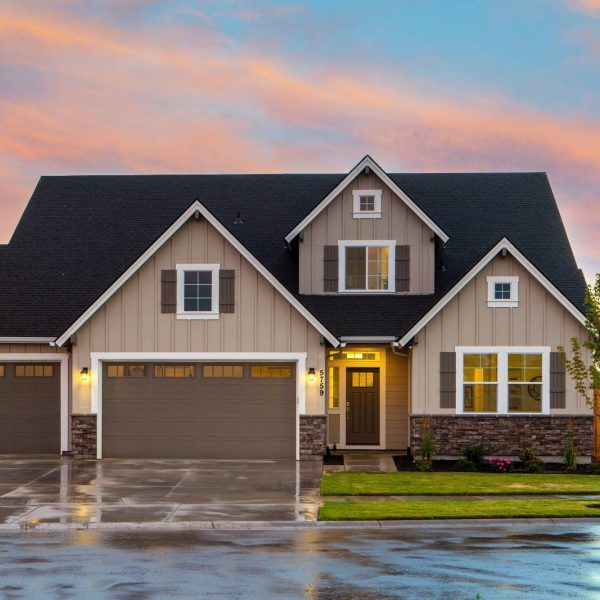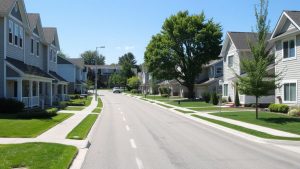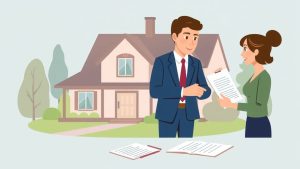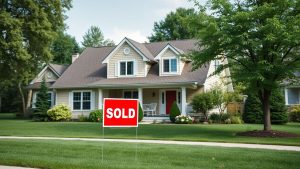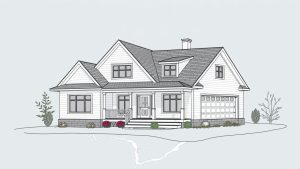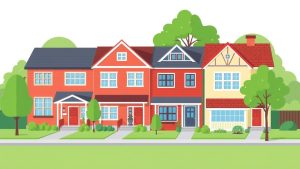Selling a house is a major decision, and homeowners want to get the best possible price for their property. However, setting an asking price that is too high can lead to negative consequences that can be difficult to recover from. This article will discuss the impact of an overpriced home when trying to sell a house and provide tips for homeowners to avoid this mistake.
Understanding the Impact of an Overpriced Home
Fewer Potential Buyers
Setting an asking price that is too high can significantly reduce the pool of potential buyers for the property. Many buyers will automatically filter out homes that are priced above market value, limiting the number of showings and offers that a homeowner receives.
Longer Time on the Market
An overpriced home will often take longer to sell than a home that is priced appropriately. As time goes by, buyers may begin to wonder why the property has not sold, which can lead to further price reductions and a lower final sale price.
Loss of Negotiating Power
When a home is overpriced, buyers may view the seller as unreasonable and be less willing to negotiate on the sale price. This can lead to a situation where the seller is forced to accept a lower price than they would have if the home had been priced correctly from the beginning.
Costly Price Reductions
If a home remains on the market for an extended period of time, the seller may be forced to reduce the price multiple times. Each price reduction can result in a loss of thousands of dollars, which can add up quickly and significantly impact the seller’s bottom line.
Avoiding an Overpriced Home
Research the Local Real Estate Market
Before setting an asking price, it is important to research the local real estate market to determine what other similar properties are selling for. This will help ensure that the home is priced competitively and attractively to potential buyers.
Work with a Real Estate Professional
Working with a real estate professional who is familiar with the local market can be invaluable when it comes to setting an asking price. A real estate agent can provide data on recent sales and help homeowners understand how their property stacks up against the competition.
Be Realistic About the Home’s Value
Homeowners should be realistic about the value of their property and set an asking price that is in line with the market. It can be tempting to overprice the home in hopes of getting a higher sale price, but this can ultimately backfire and lead to a lower final sale price.
Price the Home to Sell
Pricing a home to sell means setting an asking price that is competitive and attractive to potential buyers. This may mean pricing the home slightly below market value to generate interest and multiple offers, which can ultimately result in a higher final sale price.
Conclusion
Setting the right asking price is critical when trying to sell a home. An overpriced home can lead to fewer potential buyers, longer time on the market, loss of negotiating power, and costly price reductions. By researching the local real estate market, working with a real estate professional, being realistic about the home’s value, and pricing the home to sell, homeowners can avoid this mistake and ensure a successful sale.

FAQs
What happens if my home is overpriced?
If your home is overpriced, you may receive fewer showings and offers, and it may take longer to sell. Additionally, you may be forced to reduce the price multiple times, which can result in a lower final sale price.
Can I still sell my home if it’s overpriced?
Yes, you can still sell your home if it’s overpriced, but it may take longer and result in a lower final sale price. It’s important to be realistic about the home’s value and consider making price adjustments to attract more potential buyers.
How do I know if my home is overpriced?
Researching the local real estate market and working with a real estate professional can help you determine if your home is overpriced. If your home has been on the market for an extended period of time with few showings or offers, it may be a sign that the asking price is too high.
How much should I lower my price if my home is overpriced?
The amount that you should lower your price depends on various factors, including the local real estate market and the competition in your area. It’s important to work with a real estate professional to determine the appropriate price adjustment that will attract more potential buyers without leaving money on the table.
Can I increase my home’s value to justify a higher asking price?
Improving the condition and appearance of your home can increase its value, but it’s important to be realistic about how much value these improvements will add. Overpricing your home based on improvements that may not be significant enough to justify a higher price can backfire and result in a lower final sale price.
How long should I wait before adjusting the price of my home?
The amount of time that you should wait before adjusting the price of your home depends on various factors, including the local real estate market and the competition in your area. It’s important to work with a real estate professional to monitor the market and make price adjustments as needed to avoid a prolonged time on the market.

